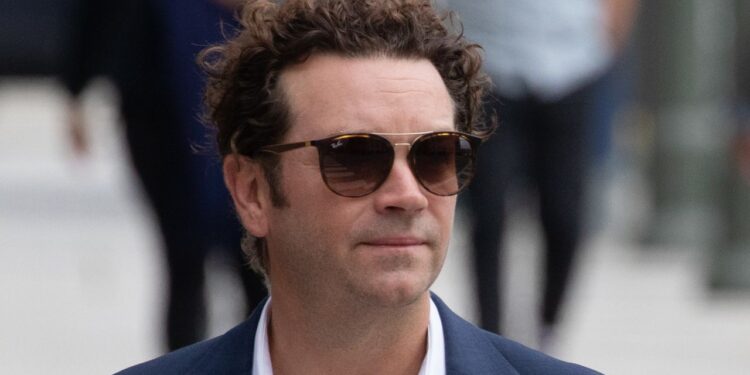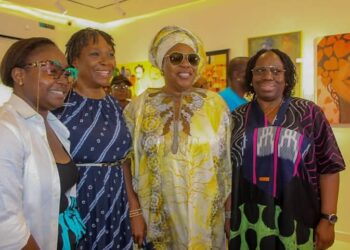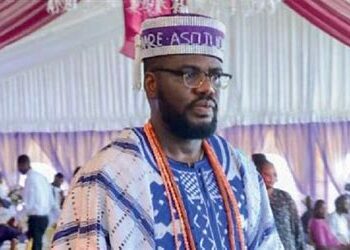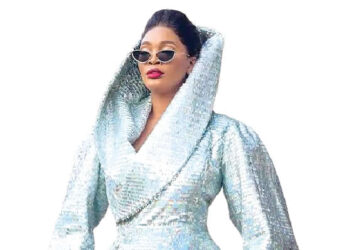American actor, Danny Masterson, was sentenced on Thursday to 30 years in prison for raping two women at his Los Angeles home in the early 2000s.
Masterson, 47, chose not to speak during the hearing — he didn’t testify in either trial.
Judge Charlaine Olmedo of Los Angeles Superior Court announced her decision following emotional statements from his victims and “verbally dismantled Masterson’s defense,” according to legal journalist Meghann Cuniff.

The actor’s attorney said they are “very disappointed in the sentence” and will appeal.
“Mr. Masterson, you are not the victim here. Your actions 20 years ago took away another person’s choice and voice. Your actions 20 years ago today were criminal, and that’s why you are here,” Olmedo said in court.
“The body is a relentless witness,” one of the accusers, identified as N. Trout, said in a statement that was read aloud in the courtroom on Thursday. “When you raped me you stole from me,” she said. “That is what rape is, a theft of the spirit.”
George Gascón, the Los Angeles district attorney, said he hoped the women’s bravery would be an example to others. “Justice was finally served today,” he said, noting that one of his top priorities was to ensure “Los Angeles will no longer be a hunting ground for Hollywood elite who feel entitled to prey on women.”
Shawn Holley, a lawyer for Masterson, told reporters outside the courtroom that she was “very disappointed” in the sentence, noting that a team of lawyers had reviewed the case and found “a number of significant evidentiary and constitutional issues” that they planned to use in appeals.
“Though we have great respect for the jury, and for our system of justice, sometimes they get it wrong and that’s what happened here,” Holley said, noting that Masterson maintains his innocence.
Masterson, 47, played Steven Hyde on “That ’70s Show” from 1998 to 2006 and also starred in the television comedy “Men at Work” from 2012 to 2014. More recently, he appeared in the Netflix comedy “The Ranch,” but was fired from the show in 2017 after the rape allegations emerged.
In May, Masterson was convicted of raping two women at his home in the Hollywood Hills in the early 2000s. The jury deadlocked on a charge that the actor had raped a third woman.
The mixed verdict was delivered after a jury deadlocked on all three charges in November, resulting in a mistrial.
The retrial this spring lasted more than a month before Masterson was found guilty of two counts of rape by force or fear.
The legal case against Masterson began unfolding in 2020, when he was charged with three counts. He pleaded not guilty.
The case was closely watched not only because it involved a Hollywood star on trial in the #MeToo era but also because two of the women had accused the Church of Scientology, to which they also belonged, of discouraging them from reporting the rapes to the authorities. The church denied that it pressured the victims.
One accuser, who was identified as Christina B. and who said Masterson raped her in 2001 when they were in a relationship, reported the rape to the church’s “ethics officer,” according to court documents. That officer told her, according to the documents, “You can’t rape someone that you’re in a relationship with” and “Don’t say that word again.” In May, the jury deadlocked on the charge related to her accusation.
Court documents also said that Masterson had raped another woman, identified as Jen B., in April 2003 after he gave her a drink. Jen B., who sought the church’s permission to report the rape, later received a written response from the church’s international chief justice that cited a 1965 policy letter, which for her raised concerns she could be ousted from her family and friends if she reported a fellow Scientologist to the police. Still, she reported the rape in 2004.
The third accuser, who was identified as N. Trout and who was raped in 2003, did not tell the church but shared it with her mother and best friend. “If you have a legal situation with another member of the church, you may not handle it externally from the church, and it’s very explicit,” she said, according to court documents. She added that she “felt sufficiently intimidated by the repercussions.”
The church has maintained that it is not a party to the case, and should not be implicated. “There is not a scintilla of evidence supporting the scandalous allegations that the Church harassed the accusers,” it said in a statement following the sentencing.
But Alison Anderson, a lawyer for two of the accusers, said that her clients planned to continue holding the church accountable for attempting to silence them.
“Despite persistent harassment, obstruction, and intimidation, these courageous women helped hold a ruthless sexual predator accountable today,” Anderson said. “They are eager to soon tell the fuller story of how Scientology and its enablers tried desperately to keep them from coming forward.”









